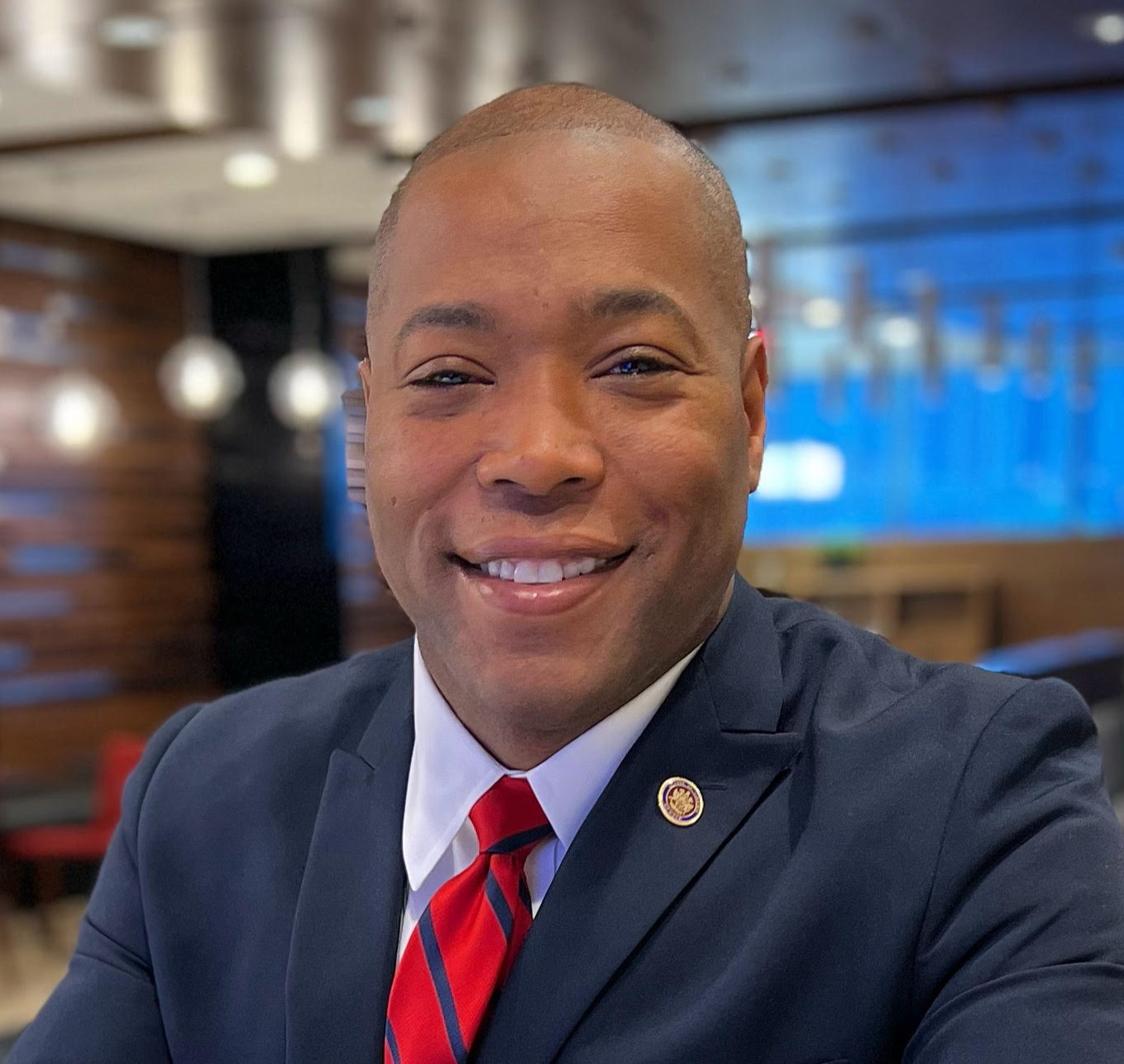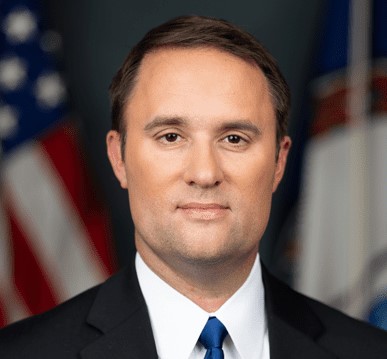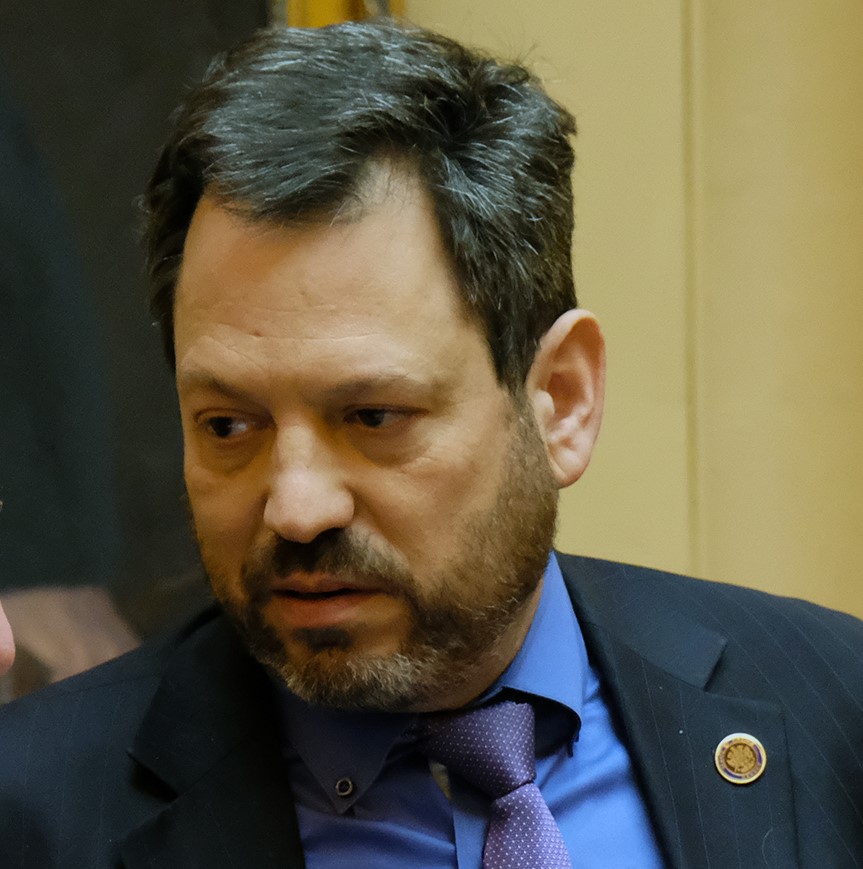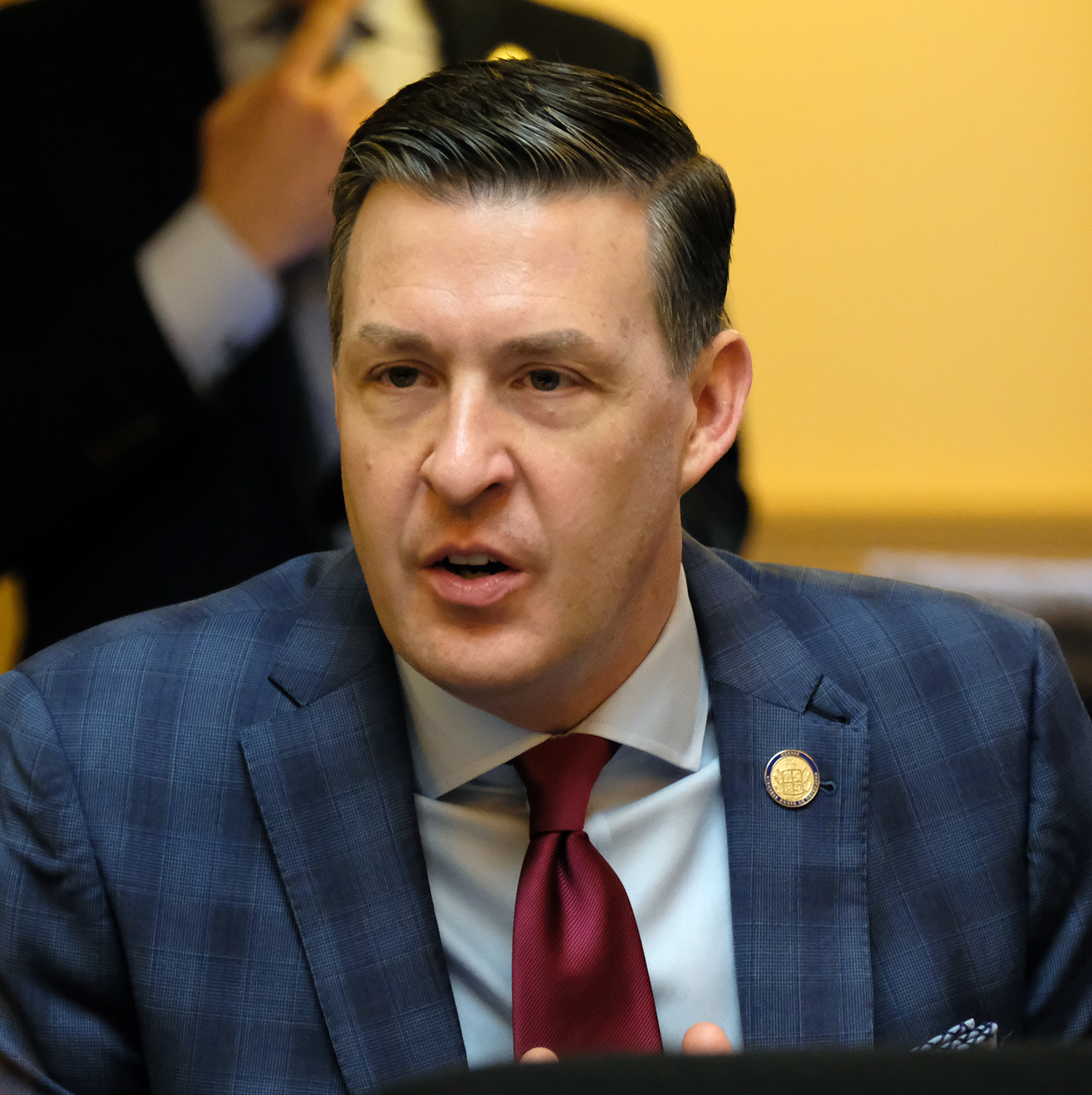A circuit court in Fairfax County sided with Democrats Tuesday in their effort to bar Gov. Glenn Youngkin’s appointments to the boards of visitors at three different universities.
Democrats on the state Senate Privileges and Elections Committee sought a preliminary injunction from the court to bar the appointments of Youngkin’s appointees to the boards of visitors at the Virginia Military Institute, the University of Virginia and George Mason University. The effort came after a back-and-forth between Democrats and Republicans regarding whether a board member is able to serve if their appointment has not been approved by the General Assembly.

Sen. Aaron Rouse, D-Virginia Beach, who chairs the Senate Privileges and Elections Committee, called the court’s ruling “a victory for the rule of law, for the Senate’s constitutional role, and for the people of Virginia.”
“Today, the court affirmed what we have maintained all along: that the Virginia Senate has the constitutional authority to confirm or reject board nominees, and that authority cannot be bypassed. The court found that the eight contested nominees were indeed rejected by the General Assembly and, as such, cannot continue to serve,” Rouse said in a statement.
“It also sends a clear message that attempts to impose political control over our public universities, whether from Richmond or Washington, will not go unchecked,” he added.
Sen. Creigh Deeds, D-Charlottesville, who sits on the Privileges and Elections Committee, called the ruling “obvious and correct, as anyone who has taken the time to read the [state] Code and state constitution, and to learn legislative process, knows.”
“The General Assembly works through its committees,” he added.
Shaun Kenney, spokesman for Attorney General Jason Miyares, said that the office is disappointed in the ruling but is prepared to appeal.

“This case is straightforward,” Kenney said in a statement. “The Constitution is clear that it is the General Assembly, not a fraction of a Senate Committee, that is authorized to act. We will quickly file an appeal with the Supreme Court of Virginia and are confident in our position.”
“The Governor respectfully disagrees with the Court’s opinion and looks forward to the Attorney General’s appeal to the Supreme Court,” Youngkin spokesperson Peter Finnochio said in a statement.
VMI Board of Visitors President James Inman did not respond to a request for comment Tuesday.
In a letter to the VMI community in June, Teddy Gottwald said the institute would follow the attorney general’s guidance for newly appointed board members to continue serving. Gottwald was then interim president and has returned to his previous position as a vice president on the board of visitors.
“I would like to think that, come January and elections are over, everyone can put politics aside and judge each appointee on their own merit,” Gottwald wrote in an email to Senate Majority Leader Scott Surovell, D-Fairfax, that was also posted on VMI’s website. “I don’t see the harm in waiting until then.”
A constitutional question at the center of gubernatorial appointments
Fairfax County Circuit Court Judge Jonathan D. Frieden pointed to at least two parts of Virginia’s constitution in his opinion:
That “the General Assembly may provide for the establishment, maintenance, and operation of any educational institutions which are desirable for the intellectual, cultural, and occupational development of the people of this Commonwealth. The governance of such institutions, and the status and powers of their boards of visitors or other governing bodies, shall be as provided by law.”
And, that “[n]o person appointed to any office by the Governor, whose appointment is subject to confirmation by the General Assembly, under the provisions of this Constitution or any statute, shall enter upon, or continue in, office after the General Assembly shall have refused to confirm his appointment.”
Youngkin appointed a number of people to the boards of visitors at the universities between February and April, after the 2025 regular session had adjourned. In May, the Secretary of the Commonwealth forwarded the list of gubernatorial appointments — which included the appointments of Jonathan Hartsock, Stephen Reardon, Charles J. Cooper, William D. Hansen, Maureen Ohlhaussen, Kenneth Cuccinelli, Caren Merrick and Jose J. Suarez — to the General Assembly for confirmation.
A week later, Rouse introduced the confirming resolution, which, if approved by the General Assembly, would have confirmed the appointees in question to their respective governing boards. The resolution, SJR 6001, was referred to the Privileges and Elections Committee that same day.
A quorum of the committee convened in June and voted 8-4 not to report the resolution to the Senate floor, effectively killing the resolution. The eight senators who voted not to report the confirming resolution were listed as plaintiffs in the injunction.
“The Senate of Virginia delegated to its Committee on Privileges and Elections the responsibility of considering the resolution to confirm gubernatorial appointees to the governing boards of George Mason University, the University of Virginia, and the Virginia Military Institute and deciding whether (and how) to bring that resolution to the Senate floor for a vote. By voting 8-4 to not report the confirming resolution, the Senate Committee on Privileges and Elections rejected those appointees on behalf of the Senate,” Frieden wrote.
“Because confirmation of a gubernatorial appointee requires the majority vote of a quorum of each chamber of the General Assembly, the action of the Senate committee manifested the General Assembly’s ‘positive unwillingness’ to make the requested confirmations and constituted a refusal to confirm under the Constitution of Virginia. Accordingly, the Constitution of Virginia required the rejected appointees to immediately cease their participation on their respective boards,” he added.
On the same day that the committee voted not to report the resolution, Surovell wrote a letter to the chairpersons of the governing boards of 15 Virginia universities, including GMU, UVA and VMI. The letter reminded the recipients of the state constitutional requirement that all members of those boards be confirmed by the General Assembly, according to a timeline of events presented in the court opinion.
A litany of letters that resulted in legal action

After Surovell’s letter was sent, Republican Attorney General Jason Miyares wrote to the chairpersons of the governing boards of 15 Virginia universities two days later, in response to Surovell. Miyares’ office asserted that Surovell “incorrectly claims that ‘the General Assembly has refused to confirm’” the disputed appointees. The attorney general’s office contended that “[t]his false statement appears designed to mislead you into thinking that the General Assembly as a whole has taken action when in fact it has not.”
Miyares’ office then reminded the recipients of the letter that he “is the chief executive officer of the Commonwealth’s Department of Law and counsel to Virginia’s public institutions of higher education.” He further advised his “Office’s conclusion … that each of [the disputed appointees] remain members of the respective board of visitors,” according to the court opinion.
Surovell responded in a letter to Robert Hardie, rector of the UVA Board of Visitors, that “[a]ny Board member who knowingly allows or participates in continued service by [the disputed appointee in question] following the General Assembly’s refusal to confirm his appointment would be violating both the Constitution of Virginia and the Code of Virginia” and that “[s]uch conduct would constitute ‘malfeasance and incompetence’” sufficient to subject them to removal by the governor, under Code § 23.1-3100, according to the court opinion.
More letter writing followed, this time from Senate Minority Leader Ryan McDougal, R-Hanover, and Sen. Mark Obenshain, R-Harrisonburg, to Senate Clerk Susan Clarke Schaar. In that letter, the senators asked Schaar to “correct” her letter to the Secretary of Virginia to, among other things, note “that the committee vote has no immediate legal effect on the status of the appointments [of the disputed appointees].”
Schaar confirmed that she was directed by Rouse to transmit her letter to the Secretary of the Commonwealth and further opined that “there are still avenues of opportunity” to confirm the appointments of the disputed appointees.

Del. Israel O’Quinn, R-Washington County, sent a letter in July to the Clerk of the House of Delegates indicating his intent to file, in the House, a resolution to confirm the appointment of the Disputed Appointees, according to the court opinion.
Neither the Senate nor the House of Delegates has conducted a floor vote on the confirming resolution. No effort to discharge the committee or reconsider its decision on the disputed appointees has been formalized in the Senate, and no resolution to confirm the disputed appointees has been filed in the House, as of Tuesday, according to the court opinion.
The 2024 Special Session has not adjourned sine die — which marks the end of a legislative session — but was instead continued into 2025 to allow for the General Assembly to gavel in outside of the regular session without the behest of the governor.
Lisa Rowan also contributed to this report.



